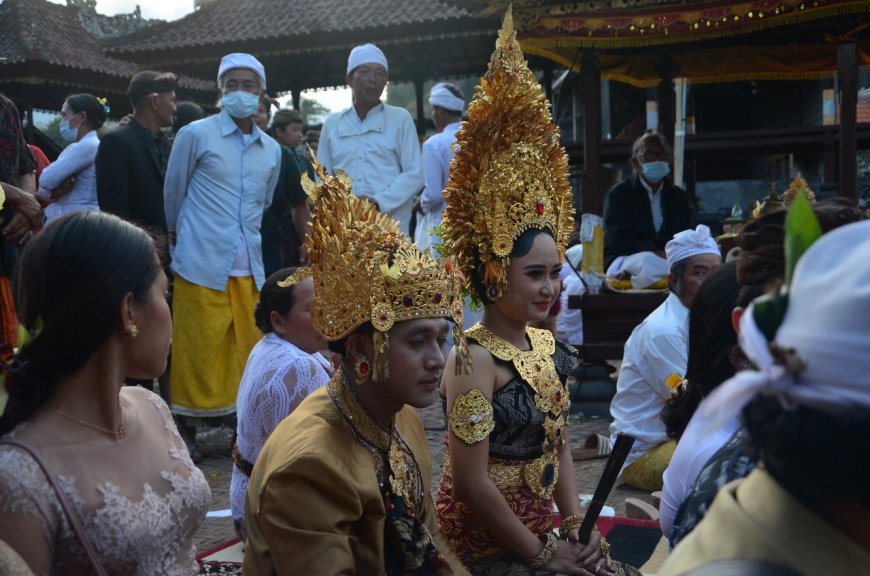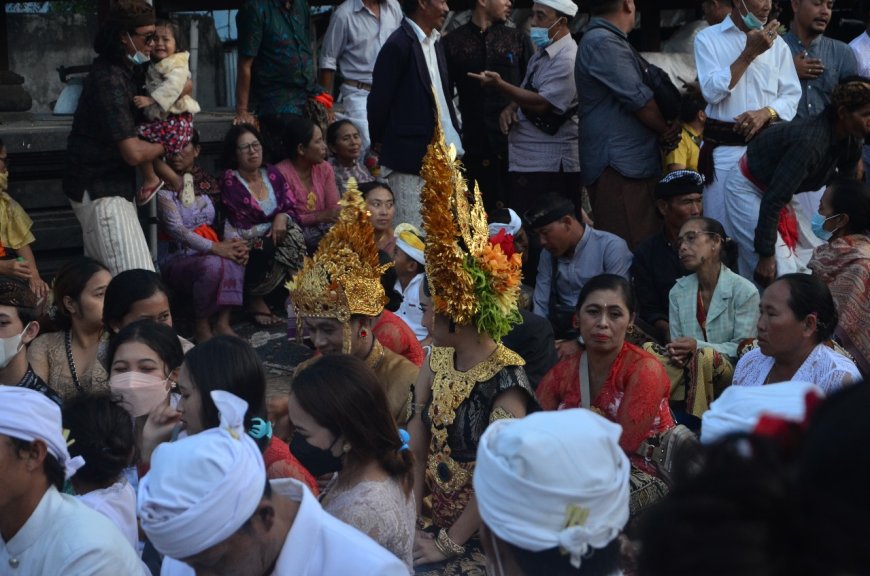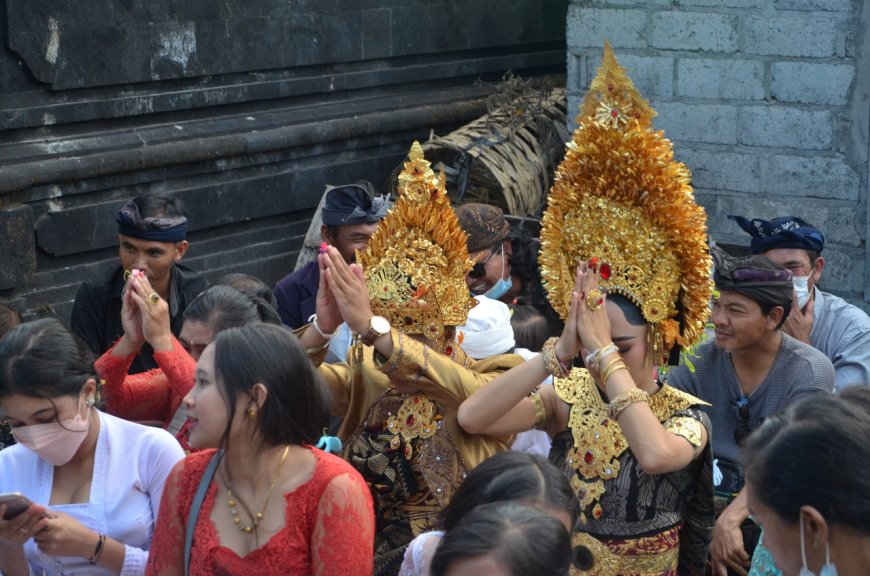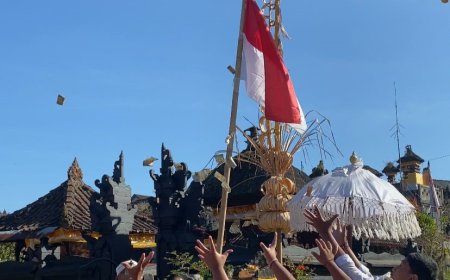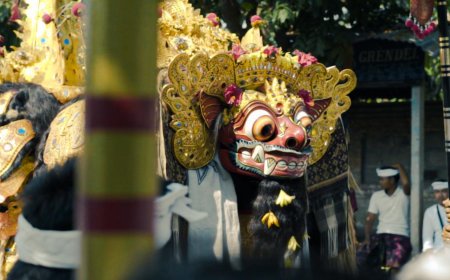The Atmosphere of Prayer at the Village Temple (Photo Source: Personal Collection)
Based on the information from the Bendesa Adat of Desa Songan, the bride and groom enter the temple through the left door, known as "ngeranjing," and exit through the right door called "medal." This process holds symbolic meaning, representing a new journey filled with hope. With their first steps inside the temple, the couple is expected to release their past and be ready to embrace all that is new. After stepping on the temple stairs, they are allowed to enter the innermost part of the temple, which is the most sacred area of the worship place. Here, the Ngaturang Bakti Pekumel ceremony is held, where the couple is witnessed by the village chief, kubayan, pemangku, and family members from both sides.
This moment is very emotional and sacred, as everyone gathers to offer support and prayers for the newlyweds. The ceremony begins with the preparation of tirta pangresikan, which is holy water that holds significant meaning in Balinese tradition. This water is taken from a sacred spring and processed with deep prayers and hopes. The holy water is then given to the couple as a symbol of purification and cleansing of the soul. Through tirta pangresikan, the newlyweds are considered cleansed of any impurities and ready to start their new, sacred life. The pemangku, who is the spiritual leader of this ceremony, also presents the offerings involving puja pangastawa, which is a tribute to the deities and ancestors. In addition, the pemangku carries out the traditions of mekumel and puja panyineban, which serve to ask for blessings and protection for the couple. All these rituals are conducted with great reverence, emphasizing the importance of spirituality in the daily lives of the Balinese people.
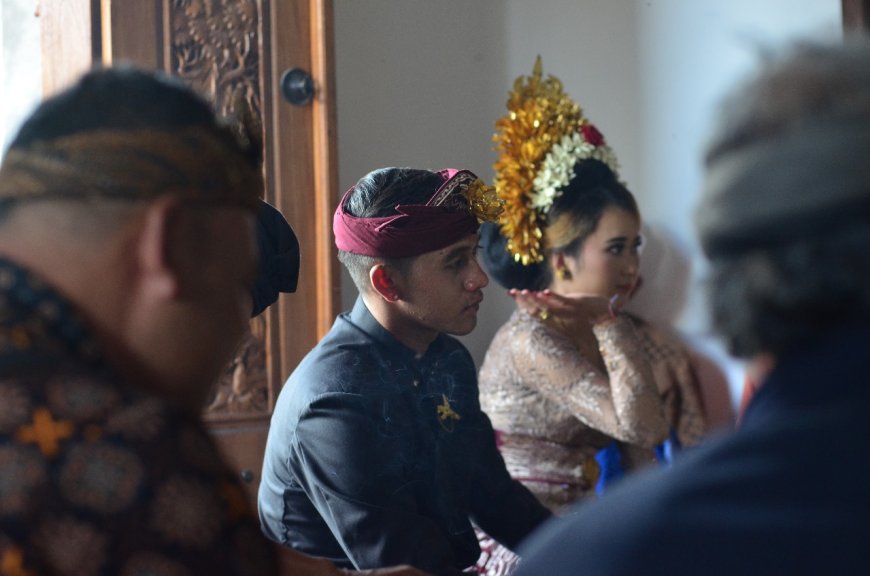
The Atmosphere of Performing Pengidihan at the Woman's Home (Photo Source: Personal Collection)
After the couple steps onto the temple stairs, they are allowed to enter the innermost part of the temple, which is the most sacred area of the worship place. Here, the Ngaturang Bakti Pekumel ceremony takes place, where the couple is witnessed by the village chief, kubayan, pemangku, and family members from both sides. This moment becomes very emotional and sacred, as everyone gathers to offer support and prayers for the newlyweds. The ceremony begins with the preparation of tirta pangresikan, which is holy water that holds significant meaning in Balinese tradition. This water is sourced from a sacred spring and processed with deep prayers and hopes. The holy water is then given to the couple as a symbol of purification and cleansing of the soul.
Through tirta pangresikan, the newlyweds are considered cleansed of all impurities and ready to embark on their new, sacred life. The pemangku, who is the spiritual leader of this ceremony, also presents offerings that involve puja pangastawa, a tribute to the deities and ancestors. In addition, the pemangku performs the traditions of mekumel and puja panyineban, which serve to ask for blessings and protection for the couple. All these rituals are conducted with great reverence, emphasizing the importance of spirituality in the daily lives of the Balinese people.
